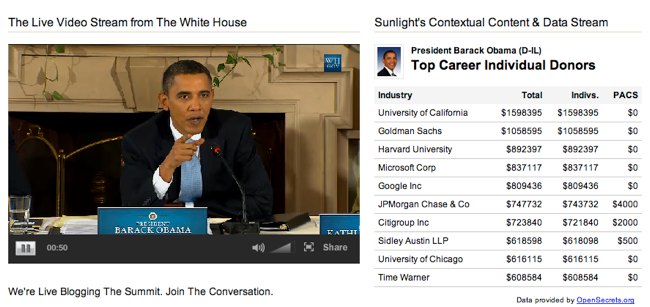Let me begin by saying that I’m tremendously honored to be here doing the welcoming keynote at SXSW. I have a huge feeling of warmth whenever I think about SXSW. Part of this is deeply personal – I met my soulmate here. I have met countless friends here. And made more professional connections than I can possibly enumerate. Walking down Red River fills me with a flash of fun memories.
What’s powerful about SXSW is first and foremost the people. From there, the content spills out beautifully. But as we think of the power of this conference to bring people together, I want to expressly call out the amazing work of Hugh Forrest, your fearless organizer. Hugh has done a phenomenal job of bringing diverse groups here to Austin to engage with one another. And for that, I’m eternally grateful.
For those of you who are old-timers, you know how special this conference is. For those of you who are new here, you’re going to have a fantastic time! Just one bit of advice: beware of the tequila and, especially, of any future colleagues who may offer you tequila.
Farming in France
Video from the current French agricultural fair.
Earthquake in Chile
At 3:34 am local time, today, February 27th, a devastating magnitude 8.8 earthquake struck Chile, one of the strongest earthquakes ever recorded. According to Chilean authorities, over 400 people are now known to have been killed. The earthquake also triggered a Tsunami which is right now propagating across the Pacific Ocean, due to arrive in Hawaii in hours (around 11:00 am local time). The severity of the Tsunami is still not known, but alerts are being issued across the Pacific. (Entry updated four times, now 45 photos total)
Las Vegas Sunrise Scenes



A beautiful sunrise. A recent evening panoramic scene of “The Strip” can be seen here.
Panorama: Austin-Bergstrom International Airport
Déjà vu: Energy Prices
It’s hard to believe it’s been two years this month since this column first revealed that speculators were running riot in the oil futures market. I pointed out that unrestrained commodities speculators were causing the oil price climb we were seeing, which would send the cost of crude to a peak of $147 a barrel by the summer of 2008. At the time most “experts” quoted in the media were saying that oil prices were skyrocketing because world supplies couldn’t keep up with demand, or because we had passed the point of Peak Oil. Neither position was true, of course; just looking at tanker shipments and worldwide oil supplies on hand, those concepts were obviously invalid.
Many of the columns I wrote for BusinessWeek in the spring and summer of 2008 debunked all the excuses being given for oil prices’ suddenly doubling. Today it has come to be considered common knowledge, even common sense, and that’s good for my track record.
Unfortunately for the country’s track record, however, knowing the truth hasn’t changed a thing.
Hegel, Call Your Publicist
Last October, in a follow-up column for BusinessWeek, “How Wall Street Will Kill the Recovery,” I pointed out how investment banks were again profiting from taxpayer-funded bailout benefits.
They were taking those near-zero-interest loans and, instead of using the money to restart lending (and thus, it’s hoped, the economy), they were pumping much of it into equities and commodities. There they were profiting from the ever-rising paper prices caused by the huge influx of cheaply borrowed money.
Honolulu’s Kapiolani Farmers’ Market

Click to view the photos.
Fabulous: Health Care Video Stream with Campaign Contributions…

The Sunlight Foundation provides a great service here.
If Our Grandparents Could See Us Now
“The OECD rates Canada’s banks as the safest in the world – the United States comes in fortieth, two places behind Botswana.”
— From I.O.U., by John Lanchester
There’s always a pile of new books near my desk; currently, most of them deal with the history of the financial crisis. When time allows I open a couple more, read them and mark key points with highlighters for easier reference. It’s always gratifying to find a passage in which a well-regarded economics writer makes the same points I have in my work, but I like books even better when they teach me things I did not already know.
An example: Barry Rithholtz, a market commentator, put the total cost of the current bailout in terms that most anyone can understand. It is now more than the nation spent for “The Marshall Plan, the Louisiana Purchase, the Apollo moon landings (and all costs of NASA’s space flights), the Korean War, the Vietnam War, FDR’s New Deal, the Invasion of Iraq and the 1980s Savings and Loan Scandal, combined and adjusted for inflation.”
That statement alone should have the public up in arms, demanding smart actions that will make sure it never happens again.
The books I’ve been reading lately also cover the fundamental economic theories of both John Maynard Keynes and Milton Friedman. Keynes is known for promoting government deficit spending in hard times, while Friedman believes in deregulating and privatizing everything. What I now find interesting is that nobody carrying the banner of either of these two economic giants seems to get Keynes’ or Friedman’s fundamental economic viewpoints entirely right.
Winter

LeMonde’s iPhone app has an interesting daily photo selection.
